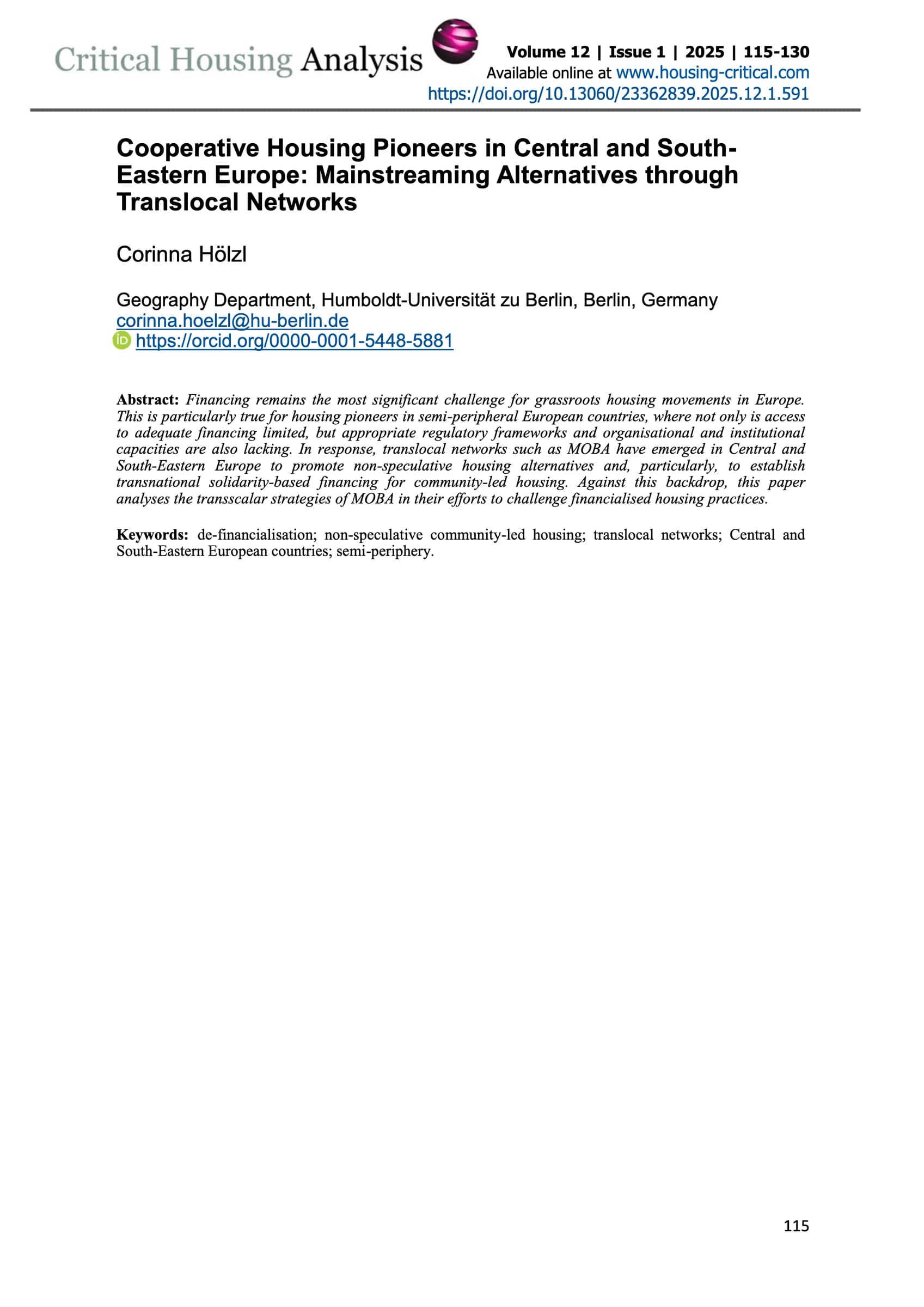AI-Generated Summary
Context and Background
This resource, titled "Cooperative Housing Pioneers in Central and South-Eastern Europe: Mainstreaming Alternatives through Translocal Networks," is authored by Corinna Hölzl from the Geography Department at Humboldt-Universität zu Berlin. It is published in Critical Housing Analysis, a journal dedicated to exploring pressing issues in housing policy and practice. The paper addresses the challenges faced by grassroots housing movements in Europe, particularly in semi-peripheral countries where adequate financing and supportive regulatory frameworks are often lacking.
Key Challenges in Housing
The paper highlights that financing is the most significant hurdle for grassroots housing movements in Europe, especially in Central and South-Eastern Europe (CSEE). These regions are characterized by a historical dependence on Western capitalist financial markets and are experiencing a neoliberal neocolonial transition, which has led to reduced state welfare services and precarious living conditions. A key issue is the phenomenon of ‘super-homeownership’, where over 70% of households own their homes, but a severe shortage of affordable rental and social housing exists.
Emergence of MOBA
To address these challenges, the translocal network MOBA was established, comprising cooperative initiatives from Croatia, the Czech Republic, Hungary, Serbia, and Slovenia. Founded in 2017 and legally constituted as a European Cooperative Society in 2020, MOBA aims to promote non-speculative housing alternatives and establish transnational solidarity-based financing for community-led housing. The network seeks to challenge financialized housing practices through various strategies, including developing alternative financing instruments.
Cooperative Initiatives
MOBA's members engage in a variety of innovative housing projects. For example, the Hungarian ACRED and the Czech Sdílené domy are testing pilot projects in Budapest and Prague. In Croatia, Cooperative Open Architecture is focusing on architectural cooperative models, while ZEF is pioneering transnational financing innovations, including the proposed establishment of a European Ethical Bank. Serbian initiatives like Pametnija Zgrada focus on public education regarding cooperative housing.
Financing Alternatives
The paper discusses the financial alternatives being developed by MOBA, such as the MOBA-Accelerator, a revolving fund designed to provide interim financing for new housing projects. This fund aims to bridge the gap in affordable long-term project financing, utilizing donations and member shares. Additionally, the European Ethical Bank project aims to create a transparent financial institution that meets the needs of small and medium enterprises in Europe.
Translocal Networking and Advocacy
MOBA also emphasizes the importance of translocal networks in promoting grassroots movements and building solidarity among housing organizations. The network serves to enhance visibility, support capacity building, and foster knowledge exchange among its members. By engaging in advocacy across Europe, MOBA seeks to politicize financialized housing practices and gain support from international civil society organizations.
Conclusion
In summary, the paper illustrates how MOBA operates as a model for de-financialization in housing, promoting cooperative and non-speculative ownership structures. It highlights the need for innovative financial instruments and the potential of translocal networks to create sustainable housing alternatives in the context of Central and South-Eastern Europe. The ongoing challenges underscore the necessity for further research and collaboration among cooperative initiatives to enhance housing accessibility and affordability.
